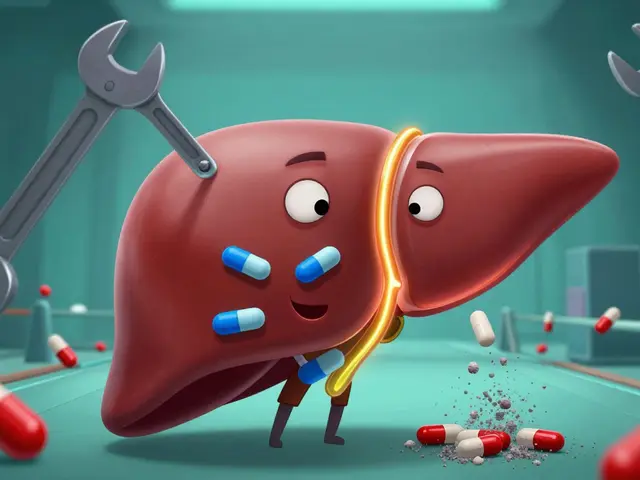Autoimmune Disorders: Causes, Common Types, and How Medications Help
When your immune system starts attacking your own tissues, you’re dealing with an autoimmune disorder, a condition where the body’s defense system mistakenly targets healthy cells. Also known as autoimmune disease, it’s not just one illness—it’s a group of over 80 different conditions, each with its own triggers and symptoms. Think of it like a security system that turns on your own home. Instead of fighting off viruses or bacteria, it goes after your joints, skin, nerves, or organs. That’s why people with these disorders often feel tired, achy, or sick for no clear reason.
Some of the most common types include rheumatoid arthritis, a condition where the immune system attacks the lining of the joints, causing pain and swelling, and lupus, a systemic disease that can affect the skin, kidneys, heart, and brain. Then there’s multiple sclerosis, where the immune system damages the protective covering of nerves, leading to muscle weakness and coordination problems. Even type 1 diabetes, a condition where the body destroys insulin-producing cells in the pancreas falls into this category. These aren’t rare outliers—they affect millions worldwide, and many people live with them for decades.
What causes this misfire? It’s not just genetics. Environmental triggers like infections, stress, or even certain medications can set off the process in people who are genetically prone. That’s why two people with the same family history might have very different outcomes. Treatment doesn’t aim to cure it—yet—but to slow the damage. Drugs like immunosuppressants, biologics, and corticosteroids help calm the overactive immune response. But they come with trade-offs: increased infection risk, weight gain, or long-term side effects. That’s why knowing your options matters. You don’t just need a diagnosis—you need a plan that balances control with quality of life.
Below, you’ll find real-world comparisons of medications used to manage these conditions, from blood thinners that reduce inflammation-related clotting risks to antivirals that prevent flare-ups triggered by viruses. You’ll also see how diet, workplace accommodations, and drug interactions play a role. This isn’t theoretical—it’s what people actually deal with every day.

IVIG Therapy for Autoimmune Disorders: How Immunoglobulin Works and When It’s Used
IVIG therapy uses pooled antibodies from healthy donors to calm overactive immune systems in autoimmune disorders. It works fast, is safer than many drugs, and helps patients with conditions like CIDP, ITP, and Kawasaki disease regain function and quality of life.
Categories
- Medications (70)
- Health and Medicine (61)
- Health and Wellness (36)
- Online Pharmacy Guides (16)
- Nutrition and Supplements (9)
- Parenting and Family (3)
- Environment and Conservation (2)
- healthcare (2)
- prescription savings (1)



